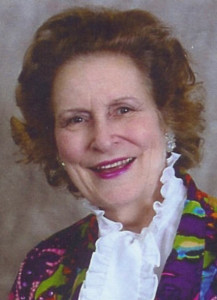The Founding of American Rosie the Riveter Association
The American Rosie the Riveter Association was founded December 7, 1998 to honor the working women of World War II. It is a 501(c) (3) not-for-profit corporation. Our purposes are to recognize and preserve the history and legacy of working women, including volunteer women, during World War II; to promote cooperation and fellowship among such members and their descendants; and to further the advancement of patriotic ideals, excellence in the work place, and loyalty to the United States of America. Members are Rosies and their descendants, both women and men.
As part of preserving history, we encourage descendants of Rosies to research their family Rosies and to write their stories, do school projects, and present their projects to community groups. Students in grades 6-12 may apply for a $100.00 ARRA Student Grant to help them buy project materials. Students may email coordinator Carol Cain carolcain007@gmail.com to request an application.
Dr. Frances Carter of Birmingham, Alabama is ARRA’s founder. Dr. Carter explains that the term “Rosie the Riveter” has come to be a generic term for all working women of WWII. A Rosie can be any woman who did what was traditionally men’s work, while millions of men were serving in the military. These are women who answered the call: AMERICA NEEDS YOU.
This work includes such things as working at a factory, a shipyard, an aircraft assembly plant, a parachute factory, a munitions plant, or a farm, lumber mill, or railroad. A woman may have been a driver, a secretary in a defense agency, a nurse, a pilot, a plane spotter or a USO or Canteen volunteer.
Most of these women had never worked outside the home before, and many returned to the home once the war ended and the men returned home. In taking these non-traditional jobs, however, women showed that they can learn any type of job, changing the perception of women for future generations.

Our founder, Dr. Frances Carter of Birmingham, Alabama.
Dr. Carter said that it was remarkable for these women to leave their homes and learn new jobs that were difficult at first. She remembers how hard a time many women had adjusting to a working environment while worrying about their loved ones overseas. “If I had been a boy, I would have been drafted. Working in the defense industry was my way of helping out in the war. We were helping our country.”
Dr. Carter was inspired to start ARRA after she and other real-life Rosies were invited to share their experiences at the Little White House in Warm Springs, Georgia, where President Franklin D. Roosevelt often vacationed. After hearing the different stories, “We decided we had a legacy to leave and the best way to do it was to form an organization,” Dr. Carter said. After ARRA’s founding December 7, 1998, the organization had its first annual meeting in Warm Springs, June 12, 1999. Members present were from Alabama, Georgia, and Florida. ARRA has had an annual convention/reunion every year since, at various cities throughout the U.S. Members from every state have attended these conventions.
ARRA’s founder, Frances Tunnell, began working in 1942 at the Parsons Airplane Modification Center in Birmingham, drilling holes and riveting B-29 bombers. She married paratrooper John Carter after the war ended. She returned to school and was a teacher of home economics at Samford University in Birmingham. The Carters have two children, grandchildren and great-grandchildren. The Carters are very active in promoting ARRA, its purposes, and patriotism. Since its beginnings in 1998, ARRA has grown to over 6,000 members, continuing the mission of honoring women and preserving history.
(By Dr. Yvonne Fasold, Jan. 2014; Excerpts and quotes from the Birmingham Post Herald, June 24, 1999.)
